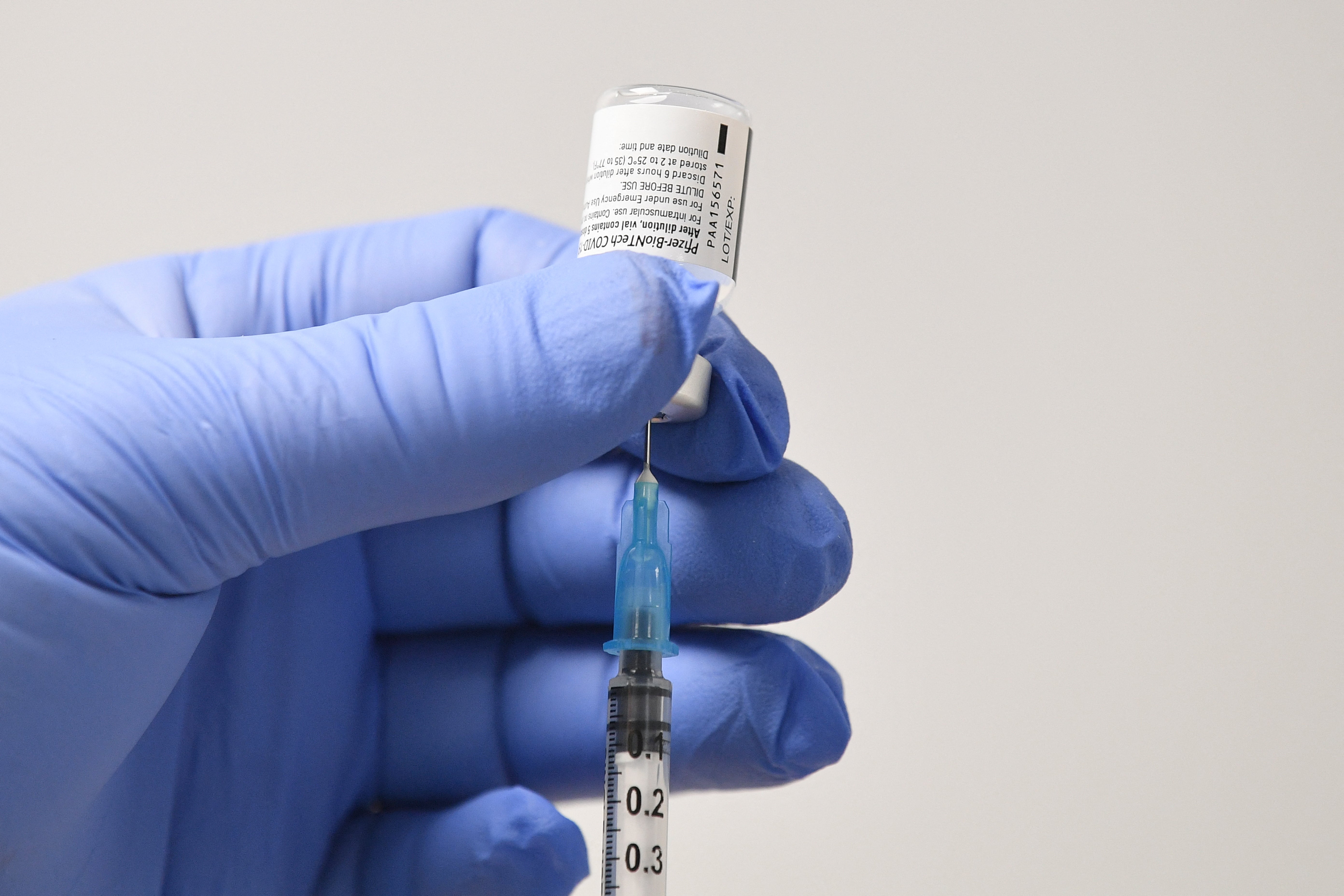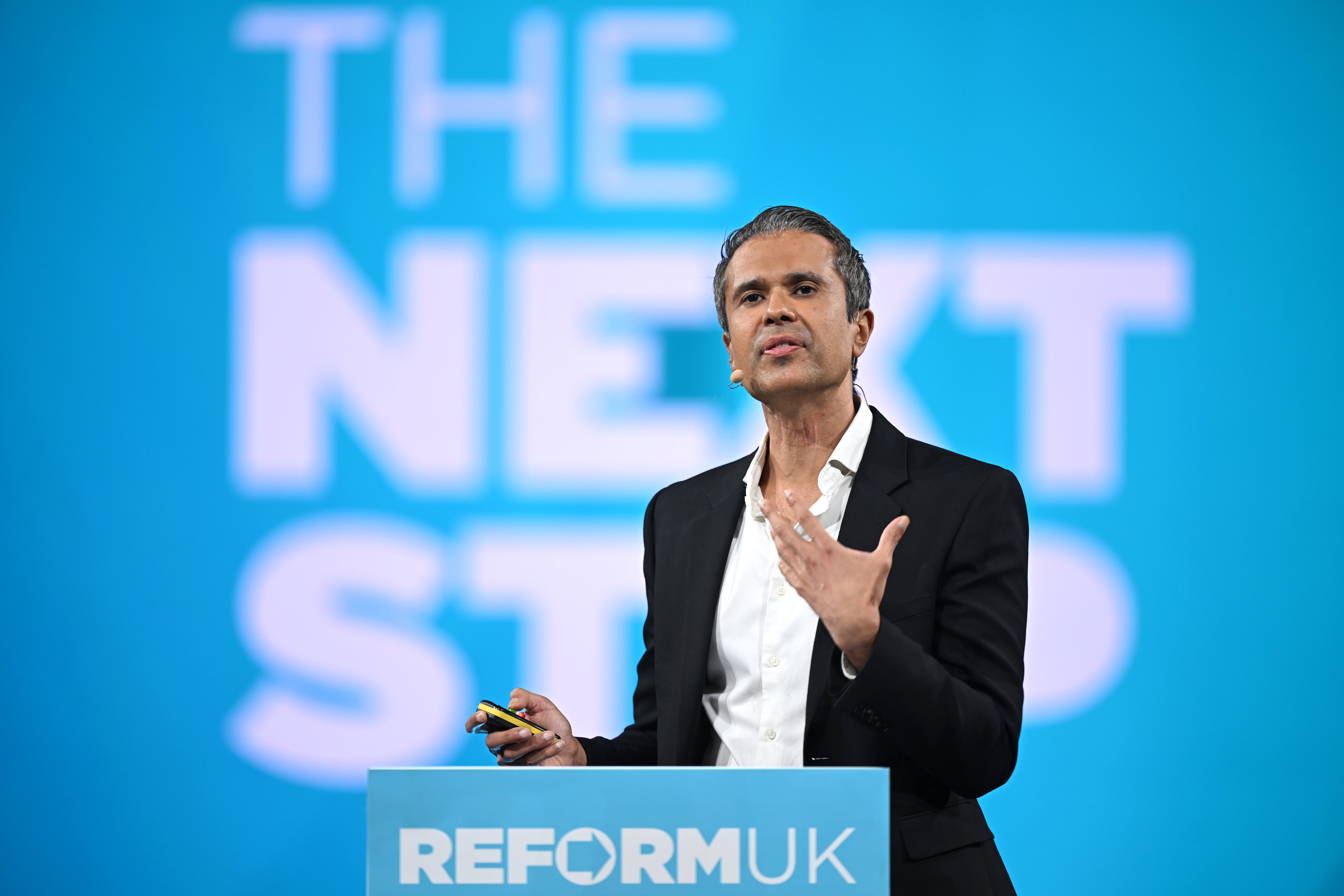

HEALTH
My Baby’s Oxygen Deprivation Led to Brain Damage: Our Heartbreaking Journey
Published
2 weeks agoon
By
OBS
A couple have revealed their heartbreak after their baby was left with severe brain damage following hospital failings during his birth.
Six-month-old Muhammed Khan, known as Azlaan, was left with life-altering brain damage after he was deprived of oxygen and resuscitated for a prolonged period following failings by Bradford Royal Infirmary on 25 February.
Parents Javeria Arooj, 24, and Kamran Agha, 26, claim warning signs were missed and their urgent concerns were ignored.Despite a heart scan revealing Azlaan had a slowing heartbeat, Ms Arooj did not have a caesarean section for another six hours, by which point her son was born “very pale and with no heartbeat”.
Teams worked to resuscitate Azlaan, but his heartbeat did not return to normal levels for 14 minutes, according to a report of the birth.

Azlaan has since been diagnosed with Grade 3 Hypoxic Ischaemic Encephalopathy (HIE), the most severe form of brain injury caused by oxygen deprivation.
He will need round-the-clock care, specialist equipment, and an adapted home to ensure he can live with dignity.
Mr Agha told The Independent: “He was deprived of oxygen, which not only caused brain damage but also damaged his kidneys and liver – it has affected his entire body. He is going to have lifelong complications.”
The father, who is currently living with Ms Arooj in his parents’ house, said he was forced to quit his IT job to take care of his son and the financial toll has become crippling on the family.
“Right now, it has become an urgent need for us to find a new home and find something suitable for Azlaan,” he said. “We’ll do whatever we can to survive, but when it comes to Azlaan, I want to be able to provide and care for him.
“He’s had a very tough start to life. For the remaining years that he’s got left, however long that may be, I want to be able to give him a good life and give him everything that he needs.”

On the evening before Azlaan was born, Ms Arooj attended the maternity assessment centre with concerns about reduced foetal movement.
Following a scan to check the baby’s heartbeat, the consultant was unsure about an abnormal heart rate. But the couple do not recall anything being done about the abnormal heart rate, and claim they were not informed.
Almost six hours passed and when the consultant started the next morning, Ms Arooj was rushed into an emergency caesarean. Azlaan was delivered with no heartbeat, with ventilation breaths started a minute and a half later. He was intubated four minutes after birth and finally resuscitated after almost 15 minutes without oxygen.
A report following the birth revealed evidence of “fresh bleeding” inside Ms Arooj’s uterus, which medics suspected was a sign of a placental abruption. This is a serious condition where the placenta separates from the womb wall before birth, requiring emergency treatment and often a caesarean section.

“We were unaware of how severe the situation was, because the communication was awful,” Mr Agha said.
“The theatres were not available, so she was just pulled into a side room and they did the operation. The hospital agreed afterwards that the C-section should have been done far earlier at 3am. And the time that it was done was 9.52am.”
Bradford Teaching Hospitals NHS Foundation Trust is one of 14 hospital trusts to be looked at as part of a rapid, independent, national investigation into maternity and neonatal services.
The investigation was launched in response to growing allegations of failures in maternity care across the country, going back more than 15 years.
Azlaan’s parents are currently going through a complaints procedure and are seeking compensation, but they have been warned it could take years to complete.

“We want to sort this case out as quickly as possible so we can begin our life rather than going through the entire headache of attending court. We’ve had enough struggle and stress as it is,” Mr Agha said.
The family have set up a fundraiser to help them move house and provide care for Azlaan.
A spokesperson for Bradford Teaching Hospitals NHS Foundation Trust said: “We sincerely apologise for the distressing experience that Muhammad and his family have been through. We recognise the significant impact this has and will have on Muhammad and his family.
“As a Trust, we know the importance of giving every child the best start in life and for Muhammad we have not done so. We have met with the family to understand more about their experience including answering any questions they have and how we can work with them to make the improvements they rightly seek. We have been touched by the bravery shown by Muhammad’s family in sharing their experience.
“We have been open and transparent with Muhammad’s family and understand the life-long consequences they are faced with. We are sorry that we have not provided the high standards of care that Muhammad’s family should expect of us.”
You may like
-


Michael O’Neill’s Heartbreaking Reaction: Northern Ireland’s Painful Defeat to Germany Revealed!
-


Meet the Woman Who Became the Longest Living Survivor of Heart and Lung Transplants—Her Journey Will Inspire You!
-


How America Changed My Hustle: MI Abaga’s Journey
-


Shocking Endometriosis Journey: How I Survived Severe Blood Loss Before Finally Getting Diagnosed
-


10,000 People Sign Up for Elon Musk’s Neuralink Brain Chip: What You Need to Know!
-


Discover How a ‘Baby Filter’ Can Surprise Your Brain: The Effects You Didn’t Expect!
HEALTH
Can’t Tell If It’s Covid or the Flu? Here Are the Key Symptoms You Must Recognize as Cases Surge!
Published
2 weeks agoon
October 16, 2025By
OBS
Health officials are warning of a seasonal surge in flu and Covid-19, with cases already starting to rise as autumn arrives.
But because the two viruses share many symptoms, it’s difficult to tell them apart.
When a sniffle seems to progress further than “just a cold”, it’s hard to know what it might be – but there are differences in how the viruses appear and the risks they pose.
Do I have Covid?
Covid-19 continues to cause serious illness, particularly among vulnerable groups. The virus is constantly evolving, with new variants spreading easily through coughs, sneezes or even conversation.
Vaccination campaigns each autumn continue to try to prevent hospitalisations and deaths.
The list of symptoms has shifted since 2020. Many people now experience cold-like symptoms, such as a runny nose, sore throat or blocked sinuses. But others still report fever or chills, a persistent cough, fatigue, headaches, shortness of breath, or a loss of taste and smell. Nausea and diarrhoea can also occur.
Doctors say a hoarse throat has become one of the hallmark features of the latest variants.

The latest strain, called Stratus, has two variants, XFG and XFG.3. Another recent strain, NB.1.8.1 nicknamed Nimbus, is also prevalent.
“Stratus is linked to hoarseness and fatigue, whereas Nimbus is associated with a ‘razor-blade’ sore throat and digestive symptoms like nausea and bloating,” explains Dr Bruno Silvester Lopes, lecturer in microbiology at Teesside University. “Both are highly transmissible but not more severe than previous variants.”
Despite accounting for a large proportion of new cases, experts are not concerned about the spread, noting it is normal for viruses to mutate and change.
Those aged 65 and over, care home residents, and people with underlying health problems are all entitled to the Covid-19 booster.
Do I have the flu?
Flu is a respiratory infection that strikes hardest in winter and can be far more debilitating than the common cold. While colds typically bring a runny nose, sneezing, watery eyes and mild throat irritation, flu tends to arrive suddenly with fever, aches and exhaustion.
Last winter alone, the flu sent more than 8,000 people to hospital. Over the past two years, at least 18,000 deaths in the UK have been linked to the virus. Children, older adults, people with long-term health problems and those with weakened immune systems face the highest risks.

Vaccination remains the strongest defence. Research shows that last year’s jab prevented thousands of severe cases, cutting hospital admissions by almost a third among over-65s and by more than half among children aged two to 17.
This autumn, the flu vaccine is being offered free to those over 75, pregnant women, children aged 2 and 3 through their GP, and schoolchildren from reception to year 11 via nasal spray. Adults under 65 with certain health conditions are also eligible.
How to tell difference between Covid and a cold
Colds and Covid can be tricky to distinguish as many of their symptoms overlap.
“Both can give you a sore throat, runny or stuffy nose, sneezing, and coughing,” says Dr Chun Tang, a GP at Pall Mall Medical. “However, Covid can also cause fever, fatigue, muscle aches, and that telltale loss of taste or smell – although that’s less common with newer variants.
“Covid is also more likely to make you feel wiped out, like you’ve been hit by a truck, whereas a cold tends to stay in your head and chest.”
“Both spread mainly through droplets when someone coughs, sneezes, or even talks near you,” says Tang. “Covid, however, can also spread more easily through the air in tiny particles that linger, especially in crowded or poorly ventilated spaces.
“So, while a cold might need a bit of close contact to catch, Covid can sometimes sneak across the room if you’re unlucky.”
Are cases climbing now?
According to the UK Health Security Agency, levels of flu and Covid-19 are already on the rise running into winter, joining other seasonal bugs such as RSV and norovirus.
UKHSA reported an increase in the number of reported Covid diagnoses in its 9 October report, with the most prevalent strain noted as Stratus XFG. Flu activity was also increasing among young adults with a surge in emergency department attendances for flu-like illnesses.
Experts say the risk is highest during the colder months when viruses spread more easily indoors.
Officials are urging everyone eligible to take up their vaccines to reduce the strain on hospitals and protect the most vulnerable. Both flu and Covid-19 can be serious, but prevention and early awareness remain the best tools against them.
HEALTH
Shocking Recall: Grocery Store Taco Kits Contain Hot Chocolate Packets!
Published
2 weeks agoon
October 16, 2025By
OBS
The Giant Company is recalling its Giant and Martin’s-branded hard taco dinner kits after hot chocolate sachets were discovered inside the packages.
The mix-up, announced October 10, could pose a risk to consumers with milk allergies.
The recall affects the 9.4-ounce Giant/Martin’s Hard Taco Dinner Kit (UPC 068826757516) all lot and codes, with a best-by date of March 13, 2026.
Consumers with a milk allergy should not eat the kits. Anyone who purchased the affected product can return it to a nearby store with a receipt to receive a refund.
Milk allergy is a common food allergy in children, caused by cow’s milk or milk from other mammals, according to Mayo Clinic.
.jpg)
Reactions can occur soon after consumption and range from mild symptoms like hives, vomiting, and digestive issues to severe, life-threatening anaphylaxis.
The main treatment is avoiding milk and milk products. Most children outgrow the allergy, while others may need to avoid milk long-term.
Meanwhile, Sno Pac Foods, a Minnesota-based company, has issued a nationwide recall of its frozen spinach products due to potential contamination with Listeria monocytogenes, a bacterium that can cause serious infections.
The recall affects two products: Del Mar 35-pound Bulk Organic Frozen Spinach and Sno Pac 10-ounce Organic Frozen Cut Spinach. These products were distributed across various retail stores in the U.S. The recall was prompted after a bulk case of spinach from a supplier tested positive for the bacterium.
This same lot was used to repack the Sno Pac Organic Frozen Cut Spinach into 10-ounce bags. As a precaution, Sno Pac Foods has suspended production of these products while investigating the source of the contamination.
No illnesses have been reported in connection with the recalled products. However, Listeria monocytogenes poses a significant health risk, particularly to young children, the elderly, pregnant women, and individuals with weakened immune systems.
In healthy individuals, infection may cause short-term symptoms such as high fever, severe headache, stiffness, nausea, abdominal pain, and diarrhea. Pregnant women are especially vulnerable, as infection can lead to miscarriage or stillbirth.
HEALTH
Could Trump’s Meds Be Slowing Him Down? Expert Warns They Might Not Be Helping!
Published
2 weeks agoon
October 16, 2025By
OBS
An adviser to Health Secretary Robert F. Kennedy Jr. warned Wednesday that President Donald Trump may appear to be “slowing down” because of the medication he takes, as questions continue over the president’s mental and physical health.
In a speech to the European Parliament, Dr. Aseem Malhotra, a British cardiologist who advised the lobby group Make America Healthy Again, said that Trump, 79, may be suffering from fatigue due to his use of cholesterol medications, or statins, and aspirin.
“President Trump is taking statins; he’s on two cholesterol drugs… This man does not have any cardiovascular disease,” Malhotra said during a launch event for a new European health activism organization, Make Europe Healthy Again (MEHA).
“If you’re over 75 and have no cardiovascular disease, the benefit of statin is – are you ready? One in 446. You have to give the statin to 446 people to prevent one cardiovascular event,” he said. “In other words, no significant benefit.”
Malhotra, a vaccine skeptic whose anti-COVID shot and anti-statin views have been rebuked as misinformation by medical experts, has been a close ally to Kennedy.

His comments come amid claims that the president may be showing signs of “cognitive decline,” due to mixing up names and other gaffes. Despite the speculation, the White House said last week that Trump was in “excellent overall health” following a “routine check-up” at Walter Reed Medical Center.
In addition to concerns about his mental acuity, Trump’s physical health has also come under question. The president has often been photographed with bruising on his right hand, raising concerns that he is suffering from some illness. The White House insists that this is a result of him shaking hands with a large number of people and his use of aspirin, which he takes as a cardiovascular protection.
White House officials revealed earlier this year that he had been diagnosed with chronic venous insufficiency, a non-life-threatening condition caused by the veins struggling to return blood to the heart. The condition is common for people over the age of 70.
During his remarks, Malhotra noted that cholesterol medication often comes with side effects, saying: “The most common ones are fatigue, muscle pain. It can cause brain fog.”
He added: “Now, I know that President Trump is a remarkable man for his age, but there have been reports – probably exaggerated by some sort of devious press for sure. But I know people who are close to him… and of course he is doing a tremendous job and maybe only sleeping four hours a night, and that may be part of it too, but it could also be that he’s slowing down a little bit because of his statins,” he continued.

Malhotra then suggested that Trump go “off his statins, off his aspirin” and would be “feeling great” within a matter of weeks.
He was apparently so concerned about Trump taking the medications that he has reached out to several people close to the president to try and warn him against it, The Daily Beast reported Tuesday ahead of Malhotra’s public remarks.
In a statement to The Independent, the White House said: “President Trump is a champion-level golfer with the mental acuity and energy levels that most young people could not fathom having.”
“So-called medical ‘experts’, especially foreign ones with no relevance or involvement with the Administration, should stop beclowning themselves and marring their credibility by pitching their idiotic hot takes with Fake News outlets that have nothing better to cover,” White House spokesman Kush Desai said.

Along with Trump’s most recent gleaming health report, White House officials noted the president received a flu shot and an updated COVID-19 booster, which Malhotra called unnecessary.
“I think President Trump, I think he genuinely took the [COVID-19] booster, I don’t think that this is a front. I think he believes in what’s happening. He himself is also a victim of medical misinformation,” Malhotra said.
However, recent research shows that COVID shots protect against serious illness and death, especially for people over the age of 65. Researchers from the VA St. Louis Healthcare System looked at data from nearly 300,000 veterans and found that last season’s Covid vaccine reduced the risk of emergency room visits by 29 percent, hospitalizations by 39 percent and deaths by 64 percent for all ages, NBC News reports.
Combining all three outcomes, the shots’ overall effectiveness was 28 percent, making it similar to the flu shot, which ranges from 30 to 60 percent protective against severe illness or death.
An April health report also noted that Trump, who was the oldest person to ever take office in January at 78, was in “excellent” health.
The report also noted that Trump had high cholesterol that was being treated with the statin rosuvastatin and ezetimibe, a medication used to absorb cholesterol. He was also taking a low-dose aspirin as part of the treatment, his doctors said at the time.
While there is no evidence that statins alone cause dementia, the FDA added a safety warning to the medications in 2012 to warn of “notable, but ill-defined memory loss or impairment that was reversible upon discontinuation of statin therapy.”
Last month, Malhotra made headlines after suggesting – without evidence – that King Charles III may have gotten cancer because of the COVID-19 vaccine.
Categories
Top Tags
Related posts






















